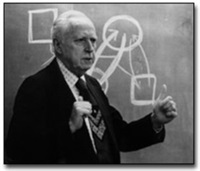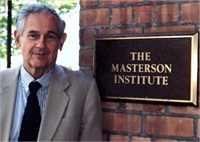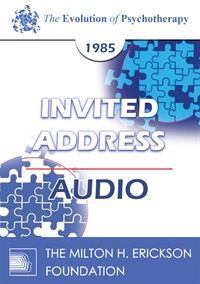EP85 Invited Address 03a - Psychotherapy - Past, Present and Future - Murray Bowen, M.D.
- Average Rating:
- Not yet rated
- Topic Areas:
- Invited Addresses | Psychotherapy | History of Psychotherapy | Family Therapy
- Categories:
- Evolution of Psychotherapy | Evolution of Psychotherapy 1985 | Pioneers in Couples and Family Therapy
- Faculty:
- Murray Bowen, MD | James F. Masterson, MD
- Duration:
- 1:32:08
- Format:
- Audio Only
- Original Program Date:
- Dec 12, 1985
- License:
- Never Expires.
Description
Description: Murray Bowen explores psychotherapy's evolution, tracing its roots in family dynamics and brain development, critiquing modern psychiatric trends while advocating for comprehensive, knowledge-driven therapeutic approaches. Discussant James Masterson complements Bowen's analysis, highlighting emerging research in child psychiatry and the importance of interdisciplinary understanding in mental health. Moderated by Sharon Cotter.
Educational Objectives:
- To know how family systems therapy helps therapists to construct effective interventions
- To help psychotherapists keep an open mind to science
- To help psychotherapists assist patients to form clear choices in their interactions
*Sessions may be edited for content and to preserve confidentiality*
Credits
Faculty

Murray Bowen, MD Related Seminars and Products
Murray Bowen (31 January 1913 in Waverly, Tennessee – 9 October 1990) was an American psychiatrist and a professor in psychiatry at the Georgetown University. Bowen was among the pioneers of family therapy and founders of systemic therapy. Beginning in the 1950s, he developed a systems theory of the family. From 1954 to 1959, Bowen worked in the National Institute of Mental Health, Bethesda, Maryland, where he continued to develop the theory that would be named after him: Bowen Theory.[4] At that time, family therapy was still only a by-product of theory. Bowen did his initial research on parents who lived with one adult schizophrenic child, which he thought could provide a paradigm for all children. After defining the field of family therapy he started integrating concepts with the new theory. He claimed that none of this had previously been described in the psychological literature. What began the first year became known nationally in about two years.
From 1959 to 1990 he worked at the Georgetown University Medical Center in Washington DC as clinical professor at the department of Psychiatry, and later as director of Family Programs and founder of a Family Center.

James F. Masterson, MD Related Seminars and Products
James F. Masterson (M.D., Jefferson Medical School, 1951) was Director of the Masterson Group, P.C., which specializes in the treatment of adolescent and adult character disorders. Additionally, he was Director of the Masterson Institute (formerly Character Disorder Foundation); attending psychiatrist at New York Hospital, Payne Whitney Clinic; and Adjunct Clinical Professor of Psychiatry at Cornell University Medical College. Masterson has authored seven books and edited two volumes, mostly on the topic of psychoanalytic approaches to character disoreders and adolescents. His seminal work on the borderline personality has made him one of the most influential and studied practitioners of modern psychoanalytic methods.


